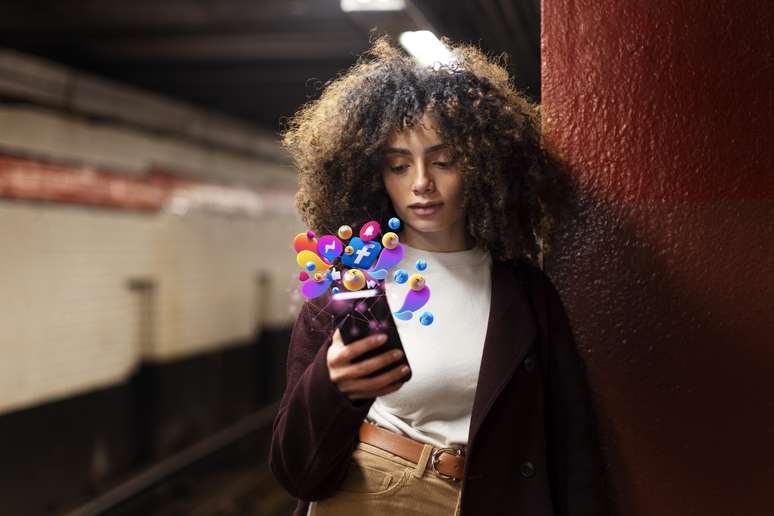Did you know that the fear of being without X (ex Twitter), for example, can impact your mental health?
The impact of social media on our mental health and daily behavior is undeniable. Recently, the announcement of the suspension of Platform X (formerly Twitter) has caused a strong reaction among users of the social network.
Goodbye Twitter/ TWITTER IS DEAD
If Twitter ended, where would we be making memes with the entire world and hearing about entertainment gossip firsthand? pic.twitter.com/lo7yUIOvEb
— TuitaWill III 🕺🏻 (@TuuitaWill) August 29, 2024
Terms like “fomo,” “jomo,” and “fobo” were created to reflect the complexity of emotions and choices that being connected 24/7 can bring to our lives.
In an interview with Earth you, the psychiatrist, Cynthia Braga, explains how these phenomena affect our emotional well-being and offers strategies for maintaining a healthy balance in the use of social networks.
FOMO
THE FOMO (fear of missing/missing things, in free translation), generally linked to online news and events, is a phenomenon that began with the advent of the Internet and, above all, social networks.
The doctor explains that the person who suffers from it may present symptoms such as anxiety, restlessness, insomnia, procrastination and leaving aside social and emotional relationships to follow what happens online.
JOMO
On the contrary, the concept of JOMO (the joy of letting go, even in free translation), appears as a reaction that many people have developed to the need to be connected and attentive to everything 100% of the time.
“Some people feel like they are actually freeing themselves from a prison in which they have trapped themselves. This separation becomes necessary when the person cannot control the time they dedicate to networks or when this time causes damage to their functioning,” explains the specialist.
FOBO
Already the FOBO (fear of the best options, in free translation) can lead to choice paralysis and feelings of dissatisfaction. The doctor cites as an example people who spend hours choosing streaming movies or places to go, and end up giving up for fear of not choosing the best option.
“An interesting strategy is to understand that when we choose one thing, we necessarily stop having another. It seems obvious, but this is precisely one of the reasons why we have difficulty choosing: we do not want to miss anything. Considering the options is very important,” the doctor emphasizes.
Thinking that all choices will have positive or negative consequences and evaluating which outcome will be more favorable and desired is another option.
“Regarding the choice of things, for example, a good idea is to make lists – and have them at hand – of indications, desires, needs. In this way we can better orient ourselves to choose what makes the most sense and not get lost among the myriad of options,” he recommends.
The doctor emphasizes that it is not easy to find a balance in relationships with online life. However, the limit to the use of networks is something that the individual can control, even if it generates discomfort or some effort. “It is illusion and naivety to think of obtaining a different result by always doing the same thing,” he concludes.
Source: Terra
Ben Stock is a lifestyle journalist and author at Gossipify. He writes about topics such as health, wellness, travel, food and home decor. He provides practical advice and inspiration to improve well-being, keeps readers up to date with latest lifestyle news and trends, known for his engaging writing style, in-depth analysis and unique perspectives.







